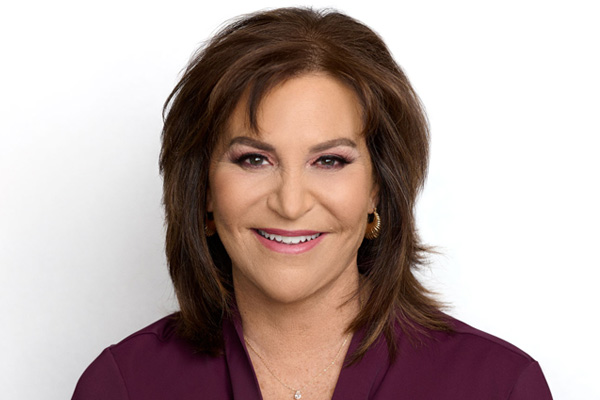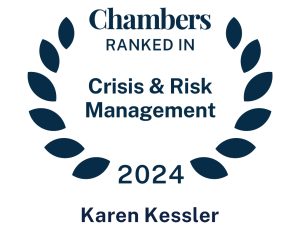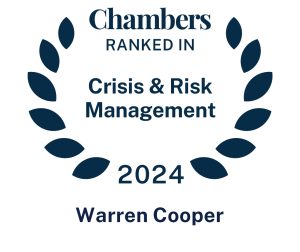Nah.
Reading unflattering media reports about you or about a company/institution you represent can be frustrating and painful – especially if you feel the coverage is undeserved, biased or simply inaccurate. You may believe the reports threaten your hard-earned stellar reputation, that your brand has been tarnished, that the negative impact on your credibility (or sales or donations or recruitment or social relations, etc.) could be profound – possibly irreversibly so.
Clients who have been targets of negative news reports want them removed or corrected. They often also want revenge. Thinking themselves victims, they want to punish those who victimized them. Admittedly, when you feel wronged, the impulse to retaliate can be strong.
Recently, members of a New Jersey borough council sought to punish a local newspaper that had published unflattering stories about them. The paper happened to be the municipality’s “official” newspaper, the one designated as the publishing site for public notices (meeting dates and times, proposed ordinances, rabies clinics, sales of municipal property, etc.) The council voted – not unanimously – to place those notices elsewhere, thereby denying the paper the publication fees. These fees are a significant source of newspaper revenue, especially for small local weeklies, but the council felt using a financial stick to retaliate against what it saw as ill treatment was justified.
Individuals and entities maligned in the media may want to shut off the flow of advertising dollars, refuse interview requests, plot retaliatory letter-to-the-editor writing campaigns, seek to have reporters (and sometimes, editors) fired. We’ve seen college leaders, hospital executives, members of Fortune 500 C-Suites, school board presidents, high profile athletes and others want to go down the revenge trail.
We tell them that it’s a bad idea. Here are some reasons why.
Publication fees, advertising and sponsorships are obviously important to publishers and owners but legitimate media outlets – even small, local ones – aim to wall-off the advertising/marketing department from editorial (the news department) to avoid allegations of bias. True, some walls are less formidable than others, but the intent is there. Editors and publishers always claim that advertising dollars don’t influence news coverage.
That means punishing the paper through its ad department won’t change the tone of editorial coverage. If anything, spite might make it worse.
It certainly won’t stop the outlet from reporting about you if you do something newsworthy. The paper serves the interest of its readers, not yours or those of your organization. And every news outlet knows the public relishes reports of leaders acting badly. (As consumers of news, we all know this, don’t we?)
Nothing smacks of a failure of leadership more than pettiness. The news outlet will almost certainly report your attempt to influence coverage, and the public will similarly recognize it as a desperate attempt to quash reports of bad behavior.
So, what’s a “victim” of negative reporting to do?
The obvious answer is to behave properly to begin with … although victims rarely feel their behavior warranted such terrible coverage in the first place. (My favorite: “So-and-so did the same thing three months ago and those bastards never wrote a word about it.” Try convincing a trooper to not cite you for speeding because they didn’t ticket the driver who passed you.)
While getting revenge is almost always the wrong goal, and usually unattainable, trying to set the record straight is a reasonable objective. Though rarely easy — and too often downright impossible, it’s worth a try.
Certainly, factual errors in the coverage should be corrected — but seek corrections without rancor. Imagine yourself to be the adult in the room.
Truth is, you’re unlikely to be successful anyway. Here are some hard truths.
Unless you can demonstrate that the news account has obvious, clear and indisputable factual errors (a misspelled name, for example), the reporter and her editor will demur.
If the news account quotes someone saying something bad about you, or attributes a demonstrably false statement to someone else, the reporter and her editor may still refuse to correct it because “they” didn’t say it, they just accurately reported someone else said it.
Here’s an insider’s secret: Unless the story has “legs,” which is to say, the issue/behavior is likely to continue generating heightened public interest or ongoing furor, the news cycle has already moved on. Simply ignore it and go back to doing the great things you’re known for. That’s often hard to do, but it’s typically the best approach.
The opposite is equally true. If you get the correction made, the outlet will promote the “updated” story. People who read the story the first time won’t reread it, but people who missed it the first time will. Congratulations. You’re giving the bad news a new audience.
Instead, focus on what you can achieve. Often that means establishing (or repairing) a relationship with reporters and outlets you rely on, or fear, for coverage. Have coffee – don’t offer to buy, that won’t fly – and get to know the journalist a little and vice versa. Perhaps you can help advance her reporting with other stories she’s working on, providing a connection or information that isn’t confidential. Your goal is to have the reporter view you as a reliable, trusted source and not as an obstacle to her ability to inform the readers.
Reporters aren’t your enemy. They’re just doing their job. Knowing how to work with the media can help you avoid the kind of reporting that spurs desire for revenge in the first place.
Warren Cooper is senior director at Kessler PR Group, which specializes in crisis communications, reputation management, litigation support and media relations.
This article was previously published on njbiz.com. To view it on that site, please click here.










